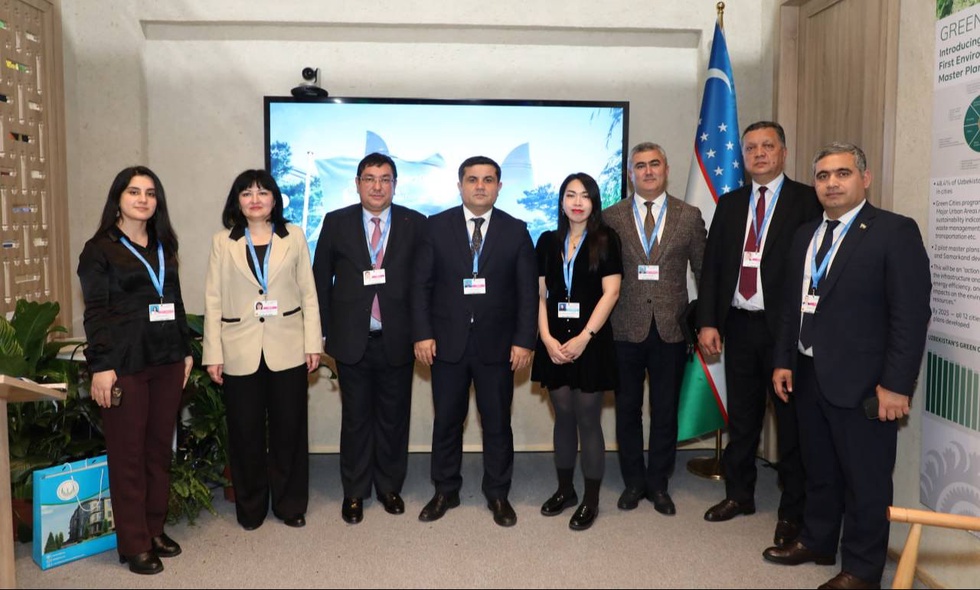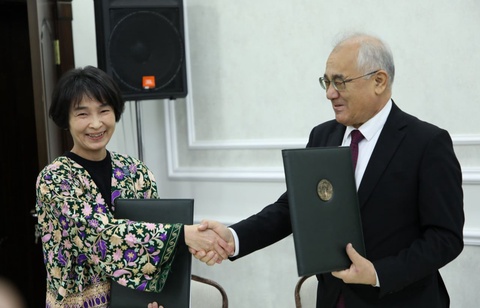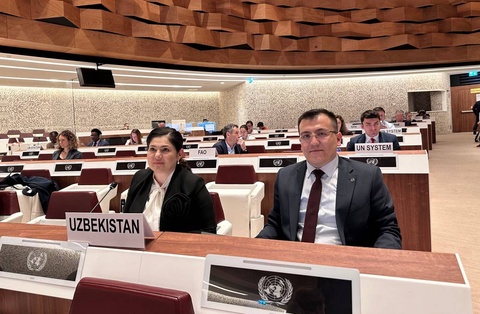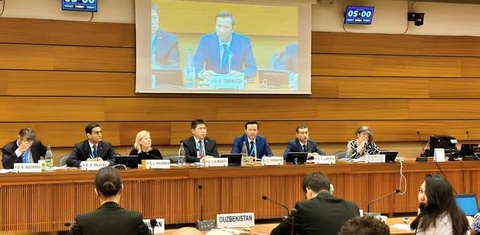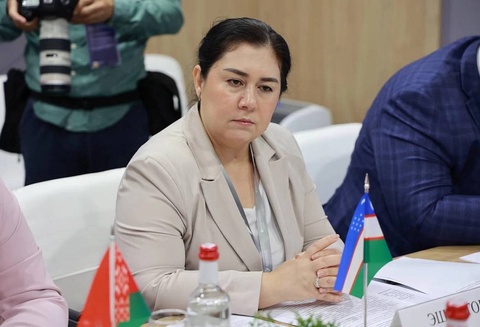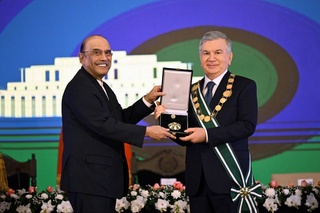It was held on the eve of the celebration of the International Day of the Rights of the Child and the 35th anniversary of the adoption of the UN Convention on the Rights of the Child.
The side event was attended by representatives of the Office of the United Nations High Commissioner for Human Rights (OHCHR), international organizations, government agencies, scientific and expert institutions of Azerbaijan and foreign countries.
During the discussion, the participants focused on the key challenges facing the world community in connection with climate change, their impact on the health of the younger generation and the need to strengthen international cooperation in this area.
First Deputy Director of the National Center for Human Rights M. Tillabaev, Coordinator for Human Rights, Climate Change and the Environment of the United Nations Office for Human Rights R. Tillabaev made presentations at the side event. Vachirarattanakornkul, Head of the Office of the Commissioner for Human Rights of Azerbaijan A. Safikhanli, Director of the Institute of State and Law of the Academy of Sciences of Uzbekistan M. Turgunov, representative of the Ministry of Ecology, Environmental Protection and Climate Change of the Republic S. Abdullayeva.
The participants emphasized that climate change has a large-scale and multifaceted impact on the rights and well-being of children around the world, with a special focus on the vulnerability of children to environmental crises associated with increased frequency of extreme weather events, deterioration of air and water quality, as well as increased environmental risks.
According to experts, about one billion children - half of the world's total child population - live in countries exposed to extremely high climate risks. Air pollution, extreme weather events, the spread of infectious diseases and environmental degradation pose major threats to their future. Children, despite their minimal contribution to global warming, face the most serious consequences. Today, almost every child is exposed to at least one environmental or climate threat.
Special attention was paid to Uzbekistan's efforts to actively participate in international initiatives and strengthen cooperation with key partners to solve these problems. Information is provided on measures to restore the ecosystem of the Aral Sea through the implementation of the project to create a "Green Belt of the Aral Sea region". The country attaches great importance to the issues of environmental education of the younger generation, the National Human Rights Education Program and the Concept of Environmental Education Development are being actively implemented, information and educational programs are being conducted among children and youth.
At the side event, participants noted the efforts of the New Uzbekistan, in particular, the successful holding of the IV Samarkand Forum on Human Rights and the adoption of the Samarkand Declaration as a document of the UN General Assembly, as well as the country's participation in the implementation of the Declaration on Children, Youth and Climate Action. It was emphasized that the environmental agenda of Uzbekistan is integrated into regional and global initiatives, which contributes to the intensification of cooperation with international partners. Uzbekistan has consistently sought to strengthen dialogue and exchange of experience in the field of environmental protection, climate change and sustainable environmental management.
The press service of the National Center
The Republic of Uzbekistan
on human rights.


